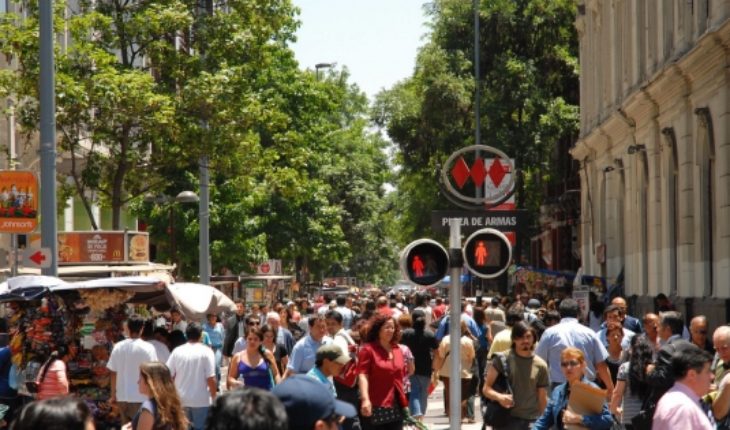The bicentennial 2018 national survey held every year the Catholic University along with GfK Adimark this year focused on 6 topics: society, family, religion, immigration, Chile and its neighbors; and the scope and limits of personal freedom.
In the 14 questions that were performed at 2011 people from all over Chile between July 13 and August 22 this year, the study showed that 78% of the total sample considered acceptable “Police asked their identification in public”.
On the other hand, 58% is agree or agree that “banning smoking in places open and public”. The initiative is mostly supported by the older than 55 years, with 68%, while only 48% of young people aged 18 to 24 would be according to the measure. In this section of questions, 22% of those who are between 18 and 24 years agrees that bans marijuana use in older, according to the daily El Mercurio.
In fact, 85% of the people are agreed with lose some freedom to “there are surveillance cameras in public places”.
“It is very surprising that the majority of the people has no problems in which police stop you to ask for the documentation without any reason or to prevent having more extreme manifestations. It is a position of devaluation of individual liberties, which is what has happened in Europe and also in parts of the United States, in Latin America. Certain attitudes that one could relate to the fear leads people to accept sacrifice personal freedoms for the sake of greater safety “, adds one of the creators of the bicentennial survey and Professor of the school of Government UC, Roberto Méndez.
“In the whole world there is a trend to more authoritarian governments and that they restrict freedoms, our hypothesis was to what extent the Chilean attitudes could be reflecting this trend. The data in some way that confirms. Appears with a rather obvious force a predisposition of people to sacrifice in part the individual, personal or social freedom as a way to defend against that same”, says Mendez.
translated from Spanish: Chile turns right: bicentennial survey indicates that the country is filled with ideas “autoritaristas”
November 11, 2018 |





